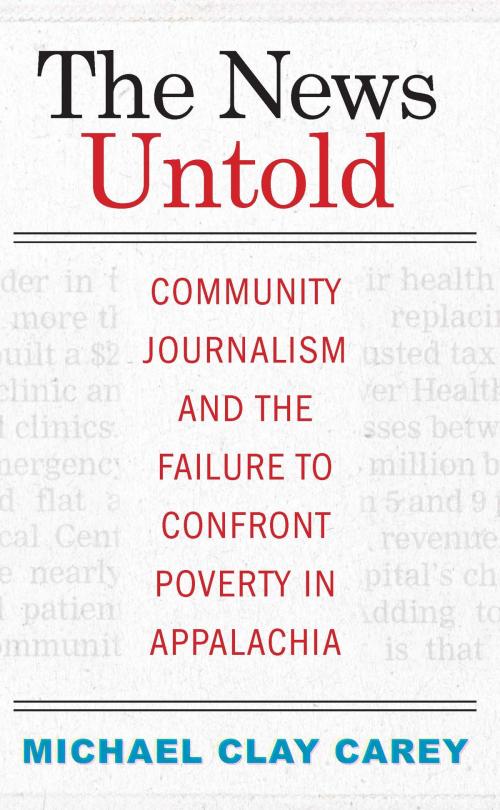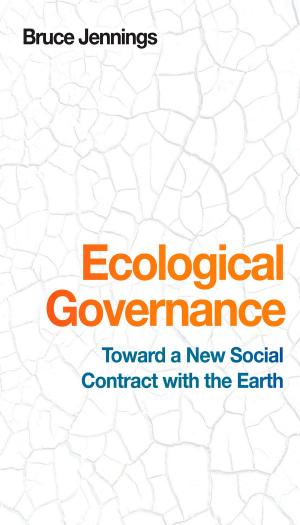The News Untold
Community Journalism and the Failure to Confront Poverty in Appalachia
Nonfiction, Reference & Language, Language Arts, Journalism, Social & Cultural Studies, Social Science, Sociology| Author: | Michael Clay Carey | ISBN: | 9781943665983 |
| Publisher: | West Virginia University Press | Publication: | November 1, 2017 |
| Imprint: | West Virginia University Press | Language: | English |
| Author: | Michael Clay Carey |
| ISBN: | 9781943665983 |
| Publisher: | West Virginia University Press |
| Publication: | November 1, 2017 |
| Imprint: | West Virginia University Press |
| Language: | English |
The News Untold offers an important new perspective on media narratives about poverty in Appalachia. It focuses on how small-town reporters and editors in some of the region’s poorest communities decide what aspects of poverty are news, how their audiences interpret those decisions, and how those two related processes help shape broader understandings of economic need and local social responsibility. Focusing on patterns of both media creation and consumption, The News Untold shows how a lack of constructive news coverage of economic need can make it harder for the poor to voice their concerns.
Critical and inclusive news coverage of poverty at the local level, Michael Clay Carey writes, can help communities start to look past old stereotypes and attitudes and encourage solutions that incorporate broader sets of community voices. Such an effort will require journalists and community leaders to reexamine some of the professional traditions and social views that often shape what news looks like in small towns.
The News Untold offers an important new perspective on media narratives about poverty in Appalachia. It focuses on how small-town reporters and editors in some of the region’s poorest communities decide what aspects of poverty are news, how their audiences interpret those decisions, and how those two related processes help shape broader understandings of economic need and local social responsibility. Focusing on patterns of both media creation and consumption, The News Untold shows how a lack of constructive news coverage of economic need can make it harder for the poor to voice their concerns.
Critical and inclusive news coverage of poverty at the local level, Michael Clay Carey writes, can help communities start to look past old stereotypes and attitudes and encourage solutions that incorporate broader sets of community voices. Such an effort will require journalists and community leaders to reexamine some of the professional traditions and social views that often shape what news looks like in small towns.















